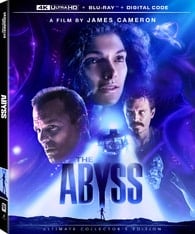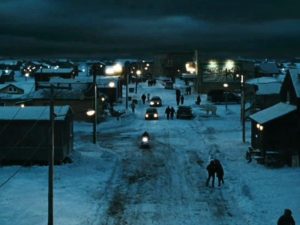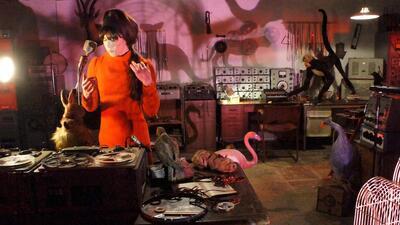
Thursday at SXSW was defined by stories about or by artists, outsiders, and dreamers. This came in a few different forms, including a pair of documentaries; one covering the life of a music pioneer and another about the surprising journey of an amateur dramatic group, and a work of animated art from filmmakers trying to pay homage and put their own stamp on a genre.
Caroline Catz’s “Delia Derbyshire: The Myths and Legendary Tapes” is an ode to one of the founding women of electronic music. The late Derbyshire is most famous for creating the iconic theme to “Doctor Who” while working at the BBC Radiophonic Workshop in the ’60s. That contribution, however, was only one of many fantastic pieces of experimental music. Catz’s documentary-drama takes cues from Derbyshire’s boundary-pushing creativity. She creates dramatic reenactments and narration from Derbyshire interviews, and the electronic musician Cosey Fanni Tutti remixed Derbyshire recordings for the film’s score.
Like the woman she’s profiling, Catz’s film is complicated, surprisingly funny, and endearingly odd. Fans of Peter Strickland’s “Berberian Sound Studio” will enjoy the creative sound design and laboratory atmosphere, as well as the way the doc plays with light and editing. Nick Gillespie, the director of SXSW title “Paul Dood’s Deadly Lunch Break,” is also this film’s cinematographer, and he creates a palette that feels of a piece with Derbyshire’s music and the psychedelic Swinging London scene she occasionally dabbled in.
It’s easy to boil down Derbyshire’s contributions to “Doctor Who,” but “Delia Derbyshire” shows us much more than that. Derbyshire was in several early electronic bands and collaborated with great artists, and Catz does her utmost to give an overlooked female genius her due.
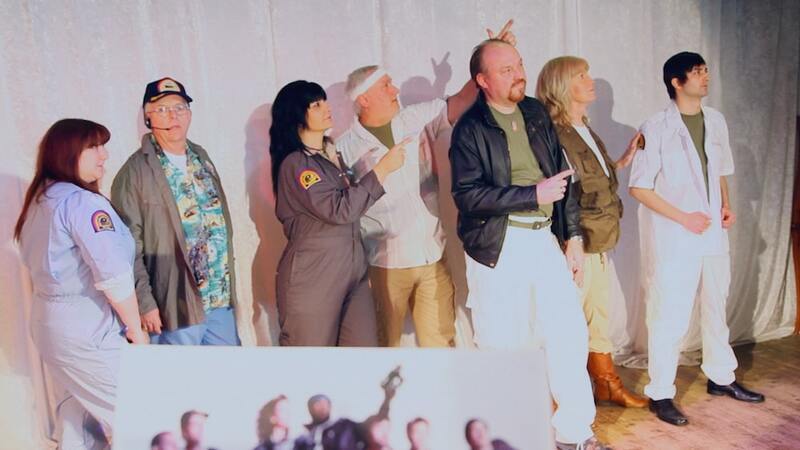
The documentary “Alien On Stage” explores the home-grown ingenuity of another set of UK artists, following the journey of an amateur theater group whose virally popular stage adaptation of Ridley Scott’s “Alien” takes them all the way to London’s West End. Lucy Harvey and Danielle Kummer’s film feels like a real-life “Waiting for Guffman” in which the amateur performers’ Broadway dreams are realized rather than cruelly dashed.
The Dorset-based Paranoid Dramatics, made up mostly of bus drivers, usually puts on annual pantomime performances. One year, the group’s writer, Luke, decides to deviate from tradition and put together a comedic stage version of his favorite movie, “Alien.” The production is a family affair, directed by Luke’s dad Dave and starring his mom Lydia as Ripley; the sets are designed by Luke’s grandfather and his brother Karl helps backstage. After a lackluster premiere (in which only 20 people show up), two ardent fans—Harvey and Kummer—start a successful crowdfunding campaign to mount their play in London, where it delights a sold-out crowd.
Anyone who’s participated in community theater or high school plays can recognize the members of the Paranoid Dramatics group. There’s the guy who loves backstage in-jokes, the prop master obsessed with making cool toys, and the one actor who’s pals with everyone, but can never get her lines right. Harvey and Kummer’s subjects are easy to root for, partly because of how relatable they are, and partly through the filmmakers’ obvious affection for them.
That affection can also be a weakness. “Alien On Stage” is made by people who are deeply familiar with the production and the people behind it, and the film lacks some context that might help larger audiences forge a stronger connection. We’re told about the first production in Dorset, for instance, but see very little footage from it, or learn what about the performance turned Harvey and Kummer into instant evangelists. These qualities become evident later on with footage of the West End production; not getting to see how the show evolved or found its first group of fans feels like a lost opportunity.
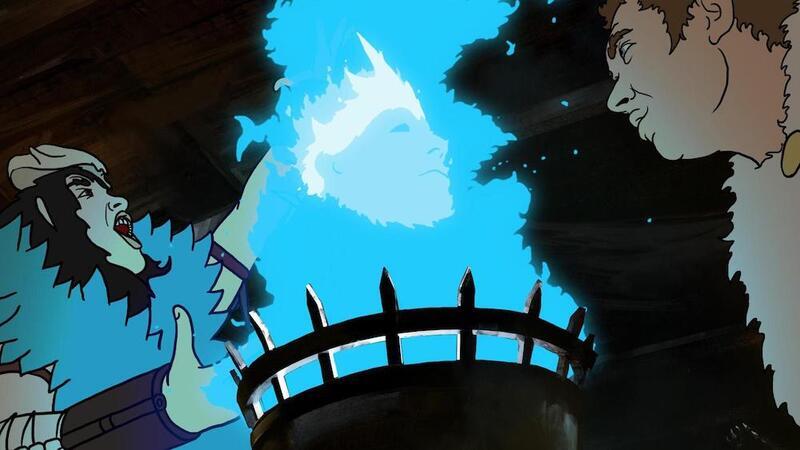
In “The Spine of Night,” directors Philip Gelatt and Morgan Galen King simultaneously try to make their own mark on the fantasy genre and pay homage to some of its greatest artists, including “The Lord of the Rings” animator Ralph Bakshi and fantasy illustrator Frank Frazetta. The latter of the two would likely be particularly proud of what Gelatt and King accomplish here. The film’s quality doesn’t always the height of its ambitions, it’s still a worthy endeavor.
“The Spine of Night” is a fantasy epic that calls to mind the barren landscapes of “Conan the Barbarian” and “Heavy Metal” and the over-the-top violence of the cult animated series “Metalocalypse.” The skull-clad, bare-chested sorceress Tzod (voiced by Lucy Lawless) is our guide through a history of her land’s wanton cruelty, relayed to The Guardian (Richard E. Grant), who protects a blue bloom with hallucinogenic capabilities and intense destructive power. Tzod’s stories also involve Ghal-Sur (Jordan Douglas Smith), a scholar who over the course of the tales becomes an immortal sorcerer and a tyrant.
Taking place over hundreds of years, “The Spine of Night” features interesting worlds and creative designs for each of its fantasy eras, from the dark ages to a cyberpunk post-apocalyptic hellscape. (The rotoscoped characters, however, have a flatness that can feel incongruous with the gorgeous backgrounds, and some of the voice acting works better than others.) Joe Manganiello, as a hardened soldier, is a perfect fit, as are Lawless and Betty Gabriel, playing a cleric. For others, like Smith and Patton Oswalt, the latter who voices a despotic prince, the performances doesn’t always jive well with the character design. Considering the scope of the project, however, “The Spine of Night” is still an impressive achievement. This is hard fantasy, made by people who clearly know and love the form.

